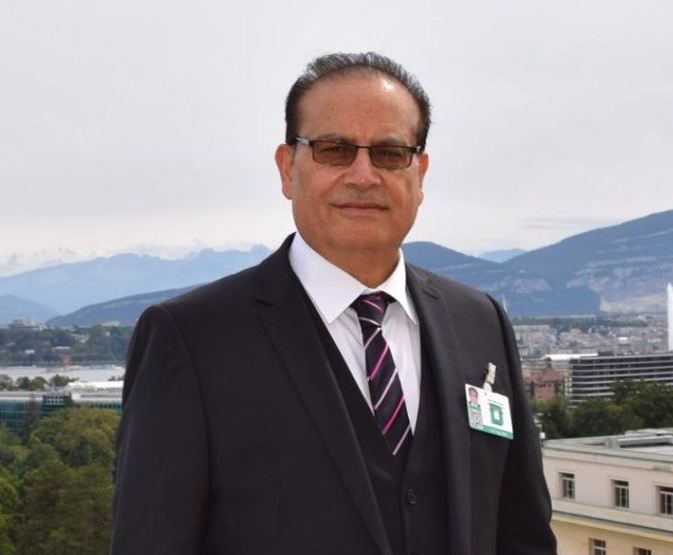By: Qamar Bashir
The greatness of China is primarily due to the farsighted visions of the Chinese leadership which are conceived, evolved and implemented and overseen by the Central Committee Party, the most important policy making machine of the Chinese state. The CPC Central Committee meeting is held at strategic intervals and plays a crucial role in setting China’s policy direction, addressing current challenges, and planning for the future. These meetings are timed to align with economic conditions, significant political milestones, and strategic planning needs, reinforcing party unity and the central leadership’s authority while shaping China’s development trajectory in various sectors.
The recently held Third Plenary Session of the 20th CPC Central Committee in Beijing from July 15 to 18, 2024, was a significant event marked by several important decisions aimed at further deepening reform and advancing Chinese modernization. The timing of the Third Plenary Session was important because it allowed for a thorough mid-term review, addressed pressing economic and social challenges, reinforced political unity, positioned China strategically in the global context, and set clear milestones aligned with significant future adversaries.
China faces a variety of challenges across multiple sectors that impact its continued rise and multidimensional power. Economically, China is grappling with a slowdown in growth, high levels of corporate and local government debt, and a potentially overvalued real estate market. Trade tensions, particularly with the United States, add to the uncertainty surrounding China’s export-driven economy. Socially, an aging population strains healthcare and pension systems, while growing income inequality and rapid urbanization exacerbate social tensions and infrastructure deficits in both urban and rural areas.
Technologically, China has made significant progress but still faces an innovation gap in high-tech sectors and challenges related to intellectual property protection. Cybersecurity threats are increasing as the country digitizes more aspects of its economy and governance. Environmentally, pollution remains a critical issue, affecting public health and quality of life. Climate change poses a significant challenge as China, one of the largest carbon emitters, seeks to balance economic growth with reducing greenhouse gas emissions and transitioning to renewable energy. Efficient resource management, particularly of water and arable land, is essential for sustainable development.
Geopolitically, China must navigate complex trade relationships and regional tensions, such as territorial disputes in the South China Sea and relations with Taiwan, while promoting its Belt and Road Initiative. Governance challenges include continuing anti-corruption efforts, strengthening the rule of law, ensuring political stability, and improving access to quality healthcare and education. Addressing these multifaceted challenges is crucial for China to maintain its growth trajectory and consolidate its position as a leading global power.
The CPC Central Committee meeting held from July 15 to 18, 2024, comprehensively addressed these multifaceted challenges and proposed several solutions to ensure its continued rise and modernization.
The meeting took stock of the economic slowdown, high debt levels, and real estate market issues and emphasized the need to build a high-standard socialist market economy by leveraging market mechanisms more effectively while maintaining robust regulations to ensure fairness and efficiency.
It proposed reforms in fiscal, tax, and financial sectors aimed at enhancing macroeconomic governance, promoting high-quality development, and fostering new growth drivers besides highlighting the importance of supply-side structural reforms and improving the mechanisms that incentivize and constrain development and continue improving and developing the system of socialism with Chinese characteristics and modernizing China’s system and capacity for governance.
The meeting addressed the social challenges such as an aging population and income inequality and proposed comprehensive reforms in education, healthcare, and social security systems. It laid prime focus on improving income distribution, employment policies, and enhancing population-related services to promote social cohesion and development. It also emphasized the importance of Urban-rural integration and proposed plans to promote equal exchanges of production factors and narrow disparities between cities and the countryside.
On the environmental front, the meeting underscored the need for coordinated efforts in pollution reduction, green development, and climate change response, with a commitment to improving ecological conservation systems and managing natural resources sustainably.
The committee took stock of the technological, geopolitical, and governance challenges and proposed bridging the innovation gap, counter cyber security threats and bring deeper reforms in education and talent development by fostering integration between the real economy and the digital economy. The meeting also stressed the importance of advancing whole-process people’s democracy, strengthening the rule of law, and ensuring full implementation of the Constitution.
Geopolitically, the CPC aims to expand institutional opening-up, deepen foreign trade structural reform, and enhance cooperation under the Belt and Road Initiative and expediting efforts to maintain political stability and continue anti-corruption measures to ensure that governance reforms support China’s long-term strategic goals.
The CPC Central Committee setup timeline for short term, medium term and long term reform. In the short term (2024-2025), the focus will be on economic social reforms, leveraging market mechanisms, stabilizing the real estate market and improving income distribution, and urban-rural integration coupled with mitigating environmental challenges. By the mid-term (2026-2029), China aims to foster innovation and establish new institutions for education and technology. Long-term goals (2030-2035) include finalizing the high-standard socialist market economy, maintaining high standards of living through advanced healthcare and social security systems and fully modernizing its governance systems.
Pakistan can benefit from adopting a similar approach by setting defined milestones to guide national development. Like China, Pakistan should focus on leveraging market mechanisms while maintaining effective regulation to balance free-market principles with government oversight, ensuring efficiency and fairness. Emphasizing high-quality development and innovation is crucial, which can be achieved by prioritizing structural reforms in education, technology, and talent development to foster sustainable growth. Additionally, integrating urban and rural development is essential to narrow disparities and promote common prosperity. Lastly, Pakistan must commit to ensuring the supremacy of the Rule of Law, upholding the constitution, and fostering national unity through legal reforms to strengthen its governance systems.











